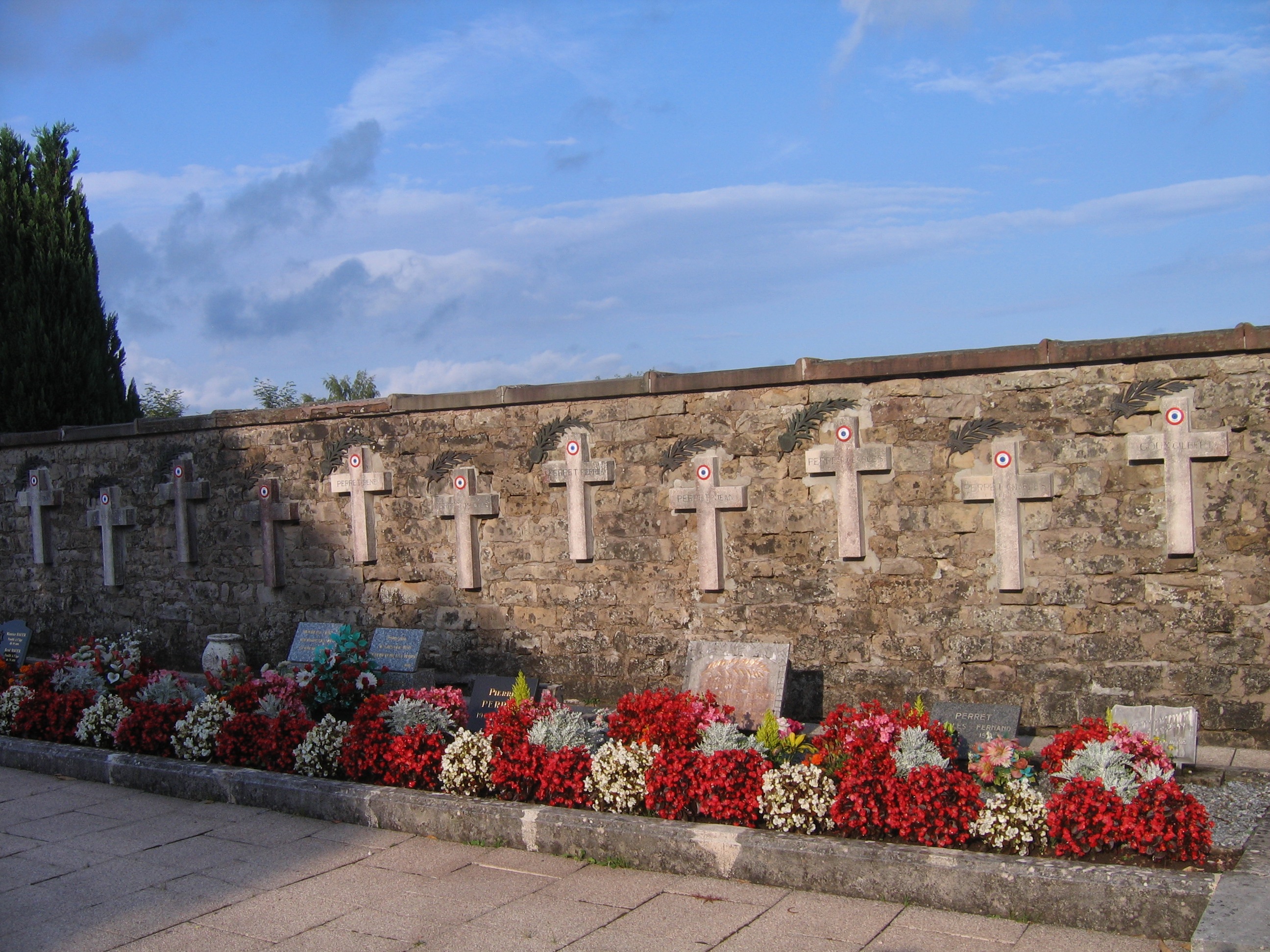The Wounded
During the next few days in September, 1944, there were no battles and few skirmishes. The attention of the people of Etobon turned to caring for those who were wounded, including Germans. A small group of resistance took a German truck, killing one of the drivers and wounding another. The wounded man, 19 years old, was taken to the parsonage to be cared for. He had been shot several times in the arm and once through the chest. Dr. Zeigler washed and bandaged his wounds, and André Pautot stayed beside him and gave him water to drink.
After two days, it became clear that the young man was going to live, thanks to the care he was receiving at the parsonage. As he gained strength, he began to talk about his family. His father was a cabinet maker back in Germany. He even said he'd return to Etobon after the war and bring gifts of furniture to the people who were taking such good care of him.
Small groups of German soldiers began to appear in the village searching for food. Perret reports that Germans were found stealing plums, pears, eggs and other items from the village and its orchards:
"Marcel Victor says that four Germans, stopping in an orchard, are eating his plums. I went to my sister’s house. A little later, from the stable where I was brushing the goat, I hear Captain Aubert’s voice: “Put your hands up!” I went out and saw two Germans, hands up, sitting in front of an egg that my sister allowed them to cook. Alfred, my brother-in-law, and mayor Charles Suzette took their revolver. Cousin Marguerite says to the boches: “At least take your pears.” “Oh, we’re not hungry any more …” “Take them!” orders the Captain.
"Jacques grabbed one of the prisoners by the belt and I followed them with one of the revolvers. What a procession! Come quickly, American friends, before things get bad!
"Meanwhile, M. Pernol and several FFI captured two other boches sitting on a bench in front of Alfred Victor’s place, who had knocked one down and was sitting on top of him. M.P. put his revolver in the nose of the other: be our comrade! He did and everything worked out. These four thieves had come to Etobon to “requisition” bicycles."

 Katherine Douglass
Katherine Douglass